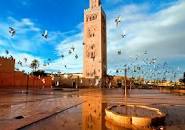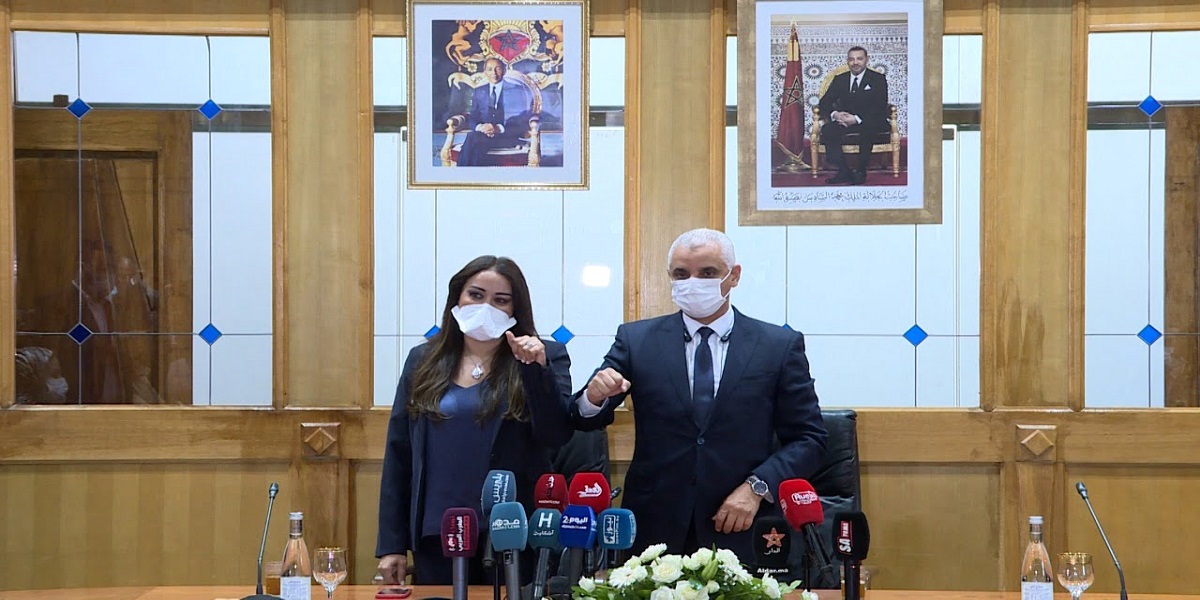 As the number of tourists visiting Morocco reached 13 million in 2019, scoring a growth rate of 5.2% between 2018 and 2019, the National Confederation of Tourism (CNT) presented over the weekend, in Marrakech, the 2020 roadmap, which aims to make Morocco an authentic destination “offering a diversity of experiences to share”.
As the number of tourists visiting Morocco reached 13 million in 2019, scoring a growth rate of 5.2% between 2018 and 2019, the National Confederation of Tourism (CNT) presented over the weekend, in Marrakech, the 2020 roadmap, which aims to make Morocco an authentic destination “offering a diversity of experiences to share”.
This tool, developed by the private sector, aims to promote the inclusive development of the tourism industry and the improvement of its competitiveness.
The vice-president general of the CNT, Fouzi Zemrani, was quoted by l’Economiste daily as saying that various actions were already launched while others are planned this year.
The main actions revolve mainly around the Public / Private Partnership, the creation of a Tourism Academy to support training in the tourist sector, digital transformation of the sector, human capital development, strengthening the competitiveness of tourism stakeholders, regulation of the sector, promotion of internal tourism and the reorganization of the Tourism Observatory.
“Regarding the Public / Private Partnership in particular, the projects already launched relate to the promotion of the Agadir-Taghazout destination, the development of human capital and the regulation of the sector,” said Zemrani, quoted by the daily.
The roadmap also provides for supporting SMEs, going digital, reorganizing the Tourism Observatory and improving the observation and analysis system.
Besides the Tourism Academy, the Confederation also intends to focus on the implementation of the “Webinar”, ie “an online class in which connected people can participate without geographic constraints, as well as a Master Class led by an expert on a particular topic.”
President of the National Tourism Confederation Abdellatif Kabbaj on his part said at a news conference in Marrakech that French tourists remain the largest group of visitors to Morocco, with around 1.99 million French nationals visiting the country in 2019.
The number of nights spent in Morocco’s tourist accommodation has also increased by 5% between 2018 and 2019, with hotels making MAD 78.5 billion (around €7.35 billion) in revenue, he noted.
The year of 2019 is “a record year for national tourism.” However, “we must not delude ourselves” with the figures, as tourism performance can further improve, underlined the Moroccan businessman.
Strengthening air transport and investing in infrastructure are the key to promote Morocco as a tourist destination, said Kabbaj.
Morocco has more than 2,000 hotels, with a total capacity of 400,000 beds, including 15,000 beds in Marrakech, Morocco’s most visited city.
However, the “occupancy rate of around 45% is still insufficient to make [hotels] profitable,” deplored Kabbaj.
“We need to work to achieve an occupancy rate above 70%, through strengthening the air and investing more in promotion,” he argued.
The tourism sector in Morocco employs more than 750,000 people and represents 7% of Morocco’s Gross Domestic Product (GDP), amounting to about MAD 80 billion (around €7.5 billion).
The sector also represents 29% of Morocco’s service exports, revealed Kabbaj, highlighting the role of tourism in the reduction of unemployment in Morocco.
While the 13 million number sets a new record for Moroccan tourism, there is still room for improvement to further boost Morocco’s position as a top tourist destination, Kabbaj said.
The tourism confederation, created in 1995, aims to bring together all the professionals in the sector, including hotels, restaurants, travel agencies, and tourist transport.

